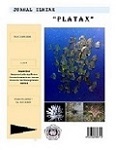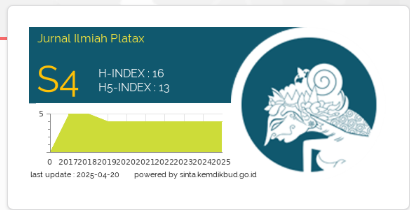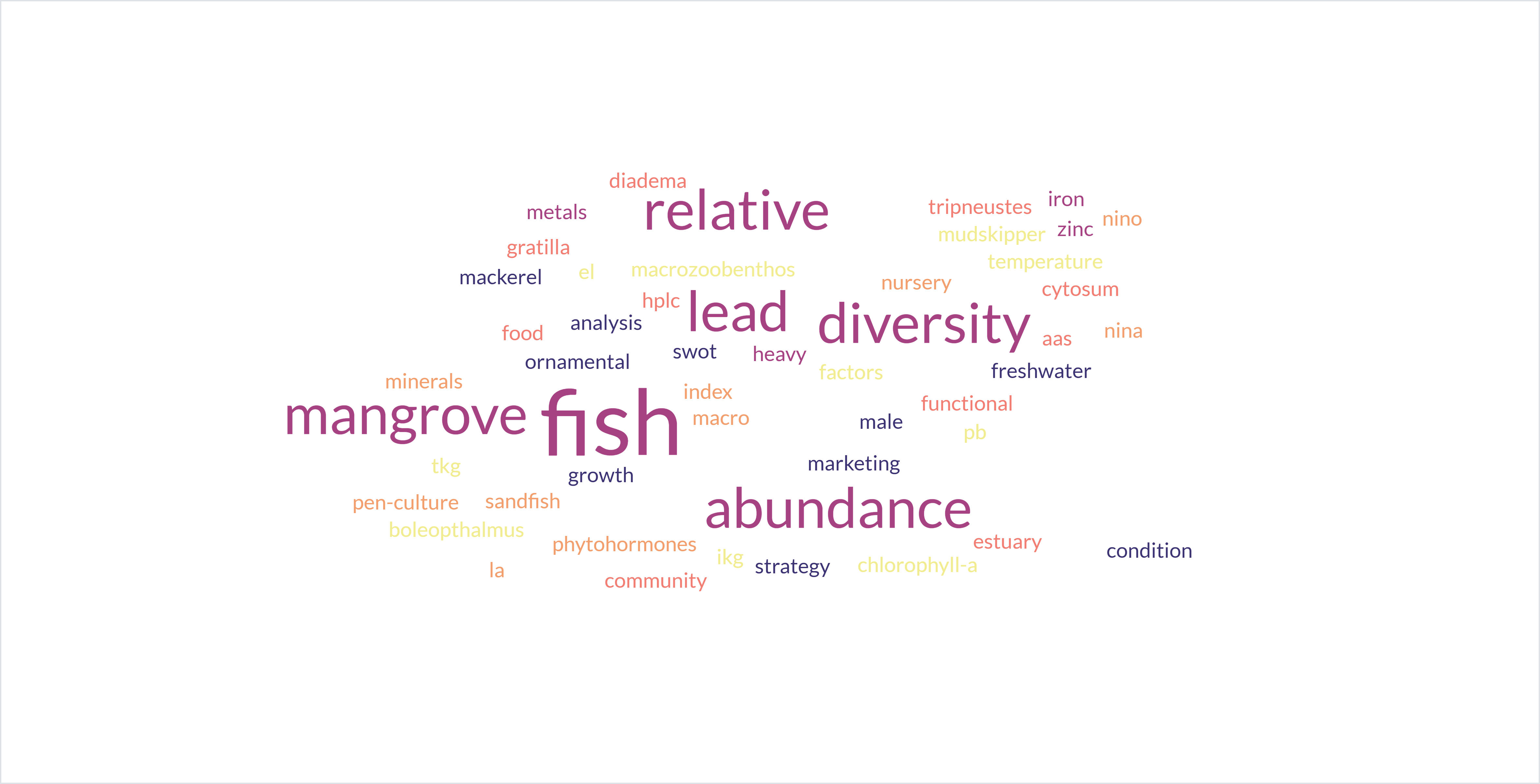Community Structure of Cucumber (Holothuroidea) in Kakara Island Village Beach Subdistrict Tobelo
DOI:
https://doi.org/10.35800/jip.1.4.2013.3701Abstract
Sea cucumbers are marine resources that have economically important value and one potential sufficient resources to serve nutritious meals so that the exploitation of this resource will continue to increase for food need. This can lead to changes in community structure. Sampling was done at night while the lowest ebb on August 20, 2013. The objective of this research work was to identity the species, the species to determine composition, and the population density and to know the species dominance, species diversity, and determine the form of interspecific association. Based on the results of research conducted in the District Tobelo Beach Island District Kakara Tobelo sea cucumber species found were 8 species, Holothuria atra, Actinopygia lecanora, Stichopus horrens, Bohadschia argus, Holothuria hilla, Actinopygia achinites, Holothuria pardalis, and Bohadschia marmorata. The diversity index H '= 1.9463, equity index or harmony e = 0.9359, and dominance index C = 0.1592. In addition, among 8 species associations if formed 9 pairs of positive associations and 19 pairs of negative associations.
Â
Keywords : Structure communities, Holothuroidea, Tobelo
Downloads
How to Cite
Issue
Section
License
COPYRIGHT
Authors who publish with this journal agree to the following terms:
Authors hold their copyright and grant this journal the privilege of first publication, with the work simultaneously licensed under a Creative Commons Attribution License that permits others to impart the work with an acknowledgment of the work's origin and initial publication by this journal.
Authors can enter into separate or additional contractual arrangements for the non-exclusive distribution of the journal's published version of the work (for example, post it to an institutional repository or publish it in a book), with an acknowledgment of its underlying publication in this journal.
Authors are permitted and encouraged to post their work online (for example, in institutional repositories or on their website) as it can lead to productive exchanges, as well as earlier and greater citation of the published work (See The Effect of Open Access).






































